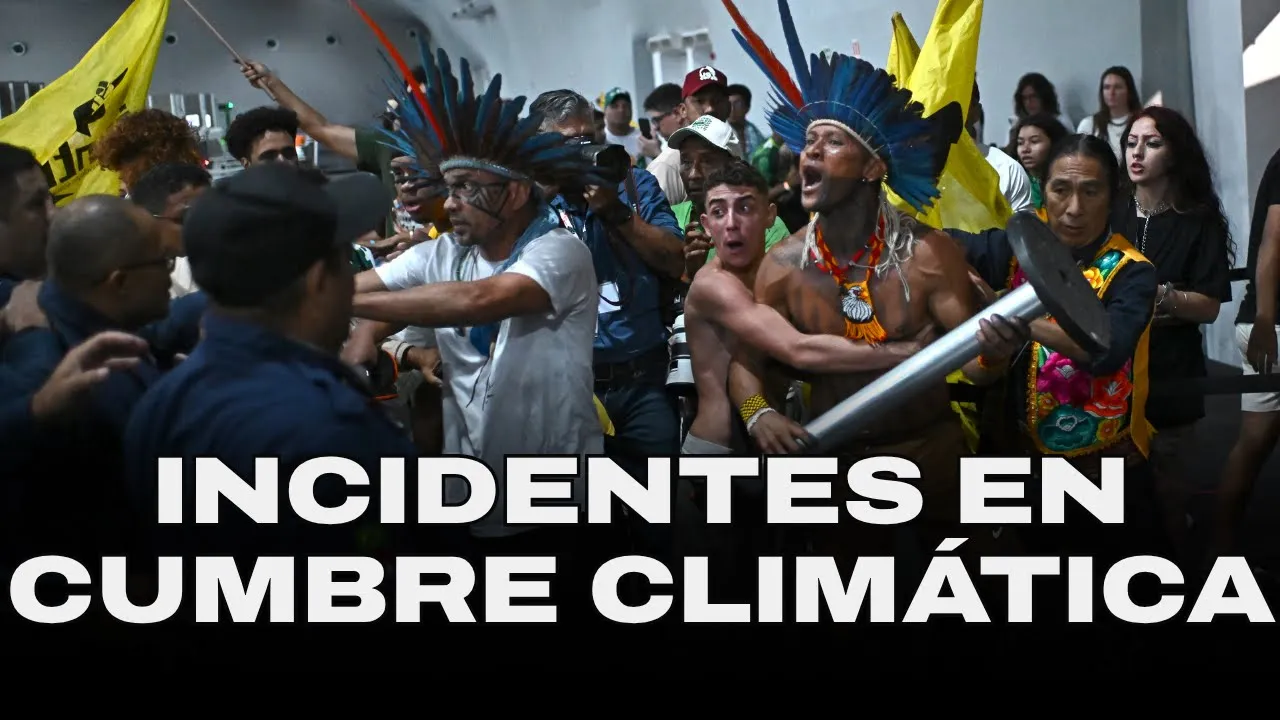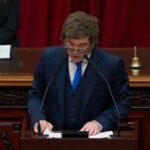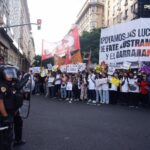
In the streets of Belém, in the heart of the Amazon, a protest called the funeral of the fossil fuels.
Hundreds of organizations, indigenous communities and socio-environmental movements from around the world will march through the city carrying a symbolic coffin to bid farewell to oil, gas and coal. ANDl Fossil Funeral It is a collective act to demand that governments leave behind the most polluting energies, which cause a large part of greenhouse gas emissions: one of the causes of global warming.
This protest was specifically called within the framework of the COP30the 30th climate summit being held in Brazil. While in the streets they say goodbye to the fossils, within the conference the main powers discuss whether or not they dare to write the words “gradual elimination” in a hidden paragraph.
That contrast is perfect to understand why these conferences amount to nothing.
The COP is the “Conference of the Parties” of the United Nations (UN). A large space where 197 countries negotiate what to do in the face of the climate crisis. It may seem decisive but it is not, because a no minor detail: there is no voting here. All decisions must be made by consensus.
If a single country does not agree, the resolution falls or is diluted. There are entire days of discussing whether this or that word is more or less annoying.
And among all participants, 1 in 25 are oil company lobbyists. Yes, there are over 1,600 fossil industry lobbyists. They have more accreditations than the delegates of the ten most vulnerable countries combined.
Therefore, after 30 summits the situation is critical and worsening:
• emissions continue to rise and a new CO2 record is expected by 2025 (Global Carbon Project);
• the use of fossil fuels continues to grow and a peak use of coal, oil and gas is estimated for the coming years – before 2030, around 2030 and in 2035 respectively – (International Energy Agency);
• and 2024 was the warmest year on record, with the global average exceeding the average for the period 1850-1900 by 1.55 °C (World Meteorological Organization)
The increase in global average temperature causes greater extreme phenomena: floods due to extreme rains such as that of Bahía Blanca, more fires and of greater intensity, droughts, extreme storms and tornadoes, heat waves, etc.
In this COP the main debates are about:
1. The new NDCseach country’s plans to reduce emissions. They should align with the 1.5°C limit. Everything indicates that it is not going to happen.
2. The Global Adaptation Goalwhich should be transformed into real financing for resilient infrastructure and support for vulnerable communities. Today it is a dead letter.
But this is not the first time this has been discussed. In 2015, the famous Paris Agreementaccording to which governments already had to commit to emissions reduction plans. A decade later the emissions and adaptation gaps they continue to grow. And this is admitted by the UN Program itself.
Faced with this hypocrisy, there were activists who broke in and denounced the farce of the official COP negotiations. Furthermore, in parallel, the People’s Summit with more than 1,300 organizations denouncing the extractivist advance, raising solidarity with Palestine, and demanding real solutions—energy transition that does not sacrifice territories, agroecology and food sovereignty, stopping genocide and wars.
Ten years after the Paris Agreement, the conclusion is clear:
The governments of the capitalists are not going to stop the climate crisis.
Fossil capitalism deepens and so-called green capitalism prepares to do new business. It is absurd to think that the destruction of nature can be faced in this way: As long as the driving force is profit, neither social nor environmental well-being matters.
And we see a clear example with Argentina. No one can suspect that Milei is interested in the environment, in fact he chose environmentalists as a target of attack. At the last COP29, to curry favor with Trump, he made a fool of himself by withdrawing the Argentine delegation after two days. But this year he returned to COP30 with two objectives: get financing y get into the carbon markets.
Carbon markets are a mechanism that turns pollution into a financial product. What does it consist of? Companies are assigned an “allowable” amount of emissions. If they are passed, instead of actually reducing them, buy carbon credits to another company or country that supposedly emitted less or protected a forest. In practice, this opens the door to creative accounting: dubious forestry projects, phantom emissions and certifiers that work for the same corporations they are supposed to control. The result is always the same: more pollution with impunity and greenwashing.
On the financing side, the situation is just as cynical. Rich countries promised $300 billion annually by 2035, but we are seeing the opposite: with more wars, more geopolitical competition, the US withdraws from multilateral organizations. The Trump government is not even participating in this summit.
Lula, for his part, wants to show himself as a green host for the region but is betting on oil at the mouth of the Amazon. The Amazonian peoples promote protests for a Oil-free Amazonreceiving violence and persecution from the government and companies as a response.
No matter how much talk of “clean energy” there is, the horizon is more extractivism, more evictions and more inequality.
One of the correspondents of the International Network of La Izquierda Diario in Brazil is Leandro Lanfredi, oilman and union leaderl. What is proposed as part of the MRT has the virtue of thinking about the potential it can have if the tenacity of the native populations in defense of the territory and the control of the workers in the main production centers of this system are combined.
In a world crossed by crises, wars and convulsions: can we recover the idea of revolution?
Source: www.laizquierdadiario.com

